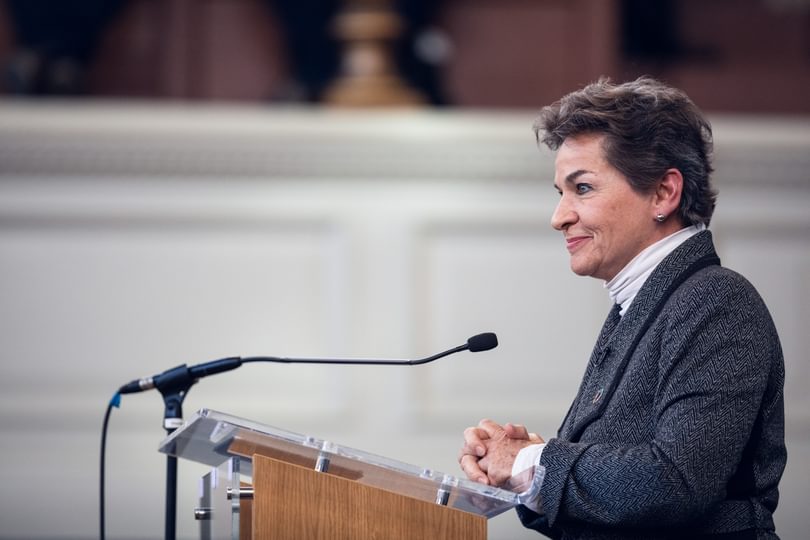
Christiana Figueres, former UNFCCC Executive Secretary and member of The Rockefeller Foundation Economic Council on Planetary Health at the Oxford Martin School lit up Oxford’s Sheldonian Theatre with passion, logic and optimism as she delivered the 2018 James Martin Memorial Lecture.
Answering the question ‘What now? Next steps on climate change’, Figueres reminded us that James Martin’s vision is as important today as it has ever been. “Beyond his prolific number of textbooks he gave us a depth of understanding of what it is to be alive in the 21st Century,” Figueres said. “The mega problems currently facing humanity are interlinked. But all these problems are solvable. We must break down the silos of thought and action to overcome them.”
Her speech was unashamedly optimistic, placing us at the very start of an exponential curve of solutions for nearly all the sectors that contribute the most to climate change. She called the automotive industry “a revolution happening in front of our eyes”, with the rise of electric and the fall of the internal combustion engine demonstrating that rapid change can happen when market forces align with government policy. With Tesla’s rapid rise and the need for other car manufacturers to compete, and bans on gasoline and diesel car sales planned for more than a dozen countries including China, India and the UK by or before 2040, the world is being reshaped in only a few decades.
Figueres also came armed with powerful advice for people who want to mitigate climate change. To make a difference, no matter your profession, she called for passionate engagement with the subject, radical collaboration to find solutions and stubborn optimism – not just when things are going your way, but to make things go your way.
She also had advice for people wanting to make a change in their personal lives – eat less meat, use public transport or cycle as much as possible, know where your money and investments are to avoid supporting high-carbon assets, and finally, vote!
Her message was passionate and motivating, but also uncompromising. “If we don’t address climate change,” Figueres said, “it is a crime against humanity and a crime against future generations. The IPCC has shown us what will happen if we don’t. If we knowingly continue down the path we are on that constitutes intentional harm.”
However, her stubborn optimism shone through to the end. “When we collaborate and work together,” she concluded, “one and one always makes three, never two. There is always common ground to move one step in the right direction. Impossible is not a fact – it’s only an attitude!”